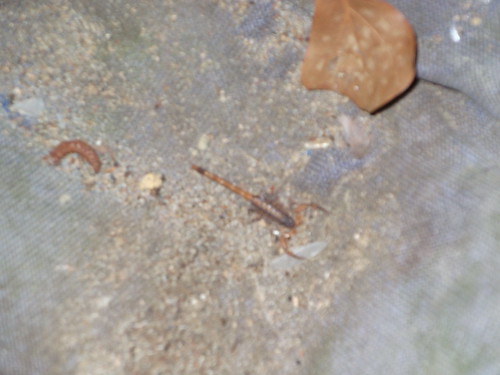
Picture by John S. Quarterman, Lowndes County, Georgia, 11 September 2011.
-jsq
Here’s a video.
Video by Gretchen Quarterman, Lowndes County, Georgia, 7 September 2011.
You can see its tail move. Continue reading
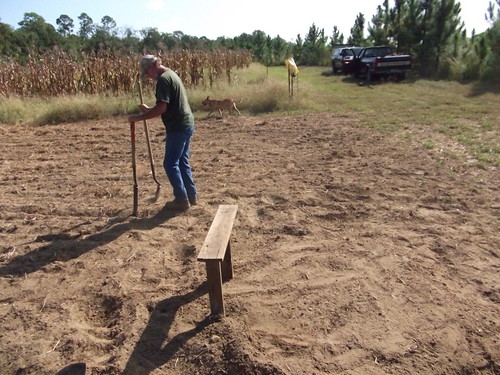
Terry Davis and John S. Quarterman banking sweet potatoes at
Okra Paradise Farms.
Pictures by John S. Quarterman, Lowndes County, Georgia, 25 August 2011.
Watch the slideshow and see:
-jsq
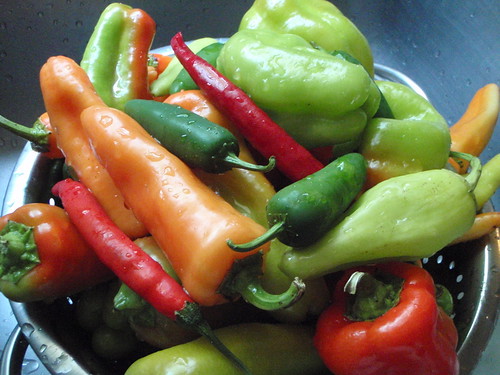
Picture by Gretchen Quarterman,
Okra Paradise Farms, Lowndes County, Georgia, 7 August 2011.
-jsq
You lookin’ at me? Continue reading
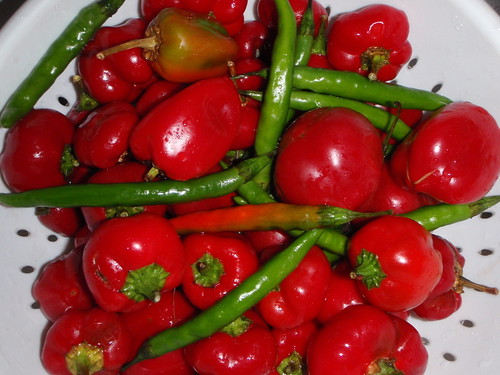
Picture by Gretchen Quarterman,
Okra Paradise Farms, Lowndes County, Georgia, 29 July 2011.
-jsq
 Very odd sounds.
Very odd sounds.
Here’s video:
What’s that sound in the woods? Part 1 of 3:
that sound, in the woods,
Lowndes County, Georgia, 20 August 2011.
Videos by John S. Quarterman.
Some kind of cat, maybe?
Let’s get closer: Continue reading
 Why did the gopher tortoise
cross the road?
Why did the gopher tortoise
cross the road?
Video by John S. Quarterman, Coppage Road, Lowndes County, Georgia, 18 August 2011.
To find a way through the fence.
-jsq
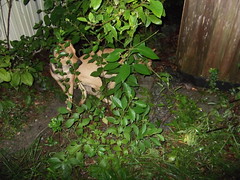 What are the dogs barking at at 3AM?
What are the dogs barking at at 3AM?
Oh, just an armadillo five feet outside their door.
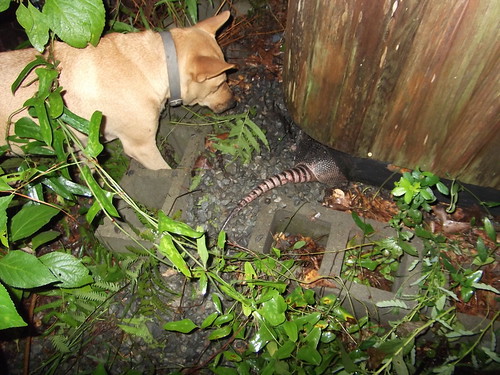
Pictures of dogs and armadillo
by John S. Quarterman, Lowndes County, Georgia, 10 August 2011.
So what happened to it? Continue reading
 WSMV in Nashville reports that
the Tennessee purple coneflower, which grows only in cedar glades,
and only in three counties in the world,
is being taken off the endangered species list:
WSMV in Nashville reports that
the Tennessee purple coneflower, which grows only in cedar glades,
and only in three counties in the world,
is being taken off the endangered species list:
 Less than one percent of endangered species ever get taken off the list.
The
Tennessean reports:
Less than one percent of endangered species ever get taken off the list.
The
Tennessean reports:
The U.S. Fish and Wildlife Service plans to officially remove the wildflower by Sept. 2, from its list of plants that are near extinction.“The Tennessee coneflower’s recovery is an example of what can be achieved through the combined efforts of dedicated partners,” said Cindy Dohner, the Service’s Southeast Regional Director, in an emailed announcement.
Echinacea tennesseensis was thought extinct until Dr. Elsie Quarterman rediscovered it in 1969 in the cedar glades which are her academic specialty. She was 59 then.
 Now she is 100, and still being honored
by her students
and by her state.
Now she is 100, and still being honored
by her students
and by her state.
Aunt Elsie
 was born in Valdosta and played basketball for Hahira High School,
before she started her very long career in botany and plant ecology.
was born in Valdosta and played basketball for Hahira High School,
before she started her very long career in botany and plant ecology.
As aye, Elsie!
-jsq
PS: This post owed to Patrick Quarterman.